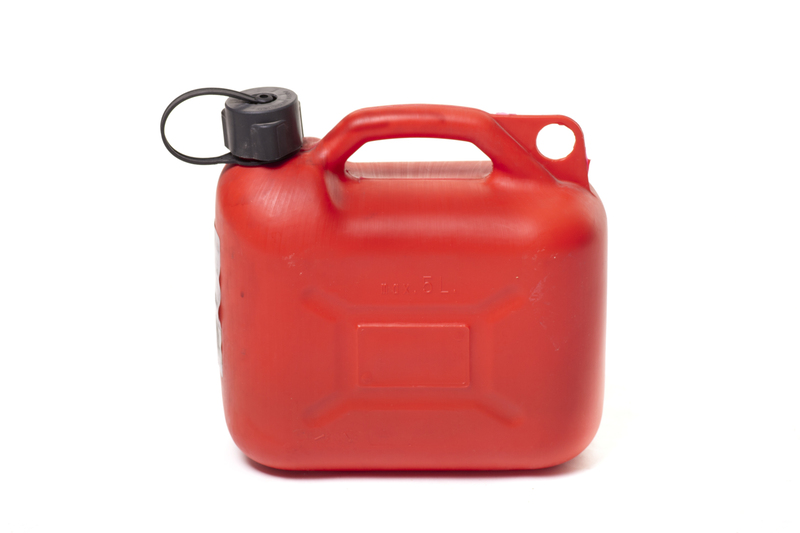Smart Storing Techniques for Freezers Not in Use
Posted on 14/06/2025
Smart Storing Techniques for Freezers Not in Use
Are you looking for optimal ways to take care of your freezer when it's not being used? Freezers not in use can quickly become a source of frustration if they aren't properly stored, maintained, and protected. Whether you have an extra freezer in the garage or a chest freezer reserved for special occasions, learning effective storage solutions makes a significant difference in your appliance's lifespan and energy efficiency. In this comprehensive guide, we'll explore the best smart storing techniques for freezers not in use, ensuring your investment remains in top shape even during long periods of inactivity.

Why Properly Storing a Freezer Not in Use Matters
- Prevents Odor Build-up: Empty, unused freezers can quickly develop unpleasant smells if not correctly cleaned and prepared.
- Reduces Mold and Mildew: Residual moisture and organic particles are breeding grounds for mold, risking both your appliance and health.
- Protects Mechanical Components: Proactive storage guards against rust, mechanical wear, and electrical issues when the freezer is restarted.
- Improves Appliance Longevity: Proper smart storing techniques for freezers not being used can add years to the appliance's life.
- Prevents Pest Infestation: Unchecked freezers can attract rodents and insects seeking shelter or crumbs.
Implementing proper storage techniques is not just about cleanliness--it's about longevity, safety, and efficiency.
Steps for Smart Storing Your Freezer When Not in Use
1. Thoroughly Clean & Defrost the Freezer
Before storing a freezer not in use, start by completely defrosting it. Unplug the appliance, prop open the door, and let the built-up ice melt naturally. Place towels at the base to collect excess water. Afterward:
- Remove all shelves, bins, and trays.
- Mix a solution of mild detergent and baking soda to scrub the interior thoroughly.
- Wipe down the gasket (door seal) as it often collects grime.
- For persistent odors, place an open box of baking soda inside while drying.
- Ensure all parts are completely dry before reassembling and prepping for storage.
2. Ensure the Freezer is Completely Dry
Moisture left behind is a leading cause of mold, mildew, and lingering smells. Use towels or allow the unit to air dry for at least 24 hours. Leave the door open during this time to allow for full ventilation. Consider using a fan to speed up the drying process.
3. Store with the Door Ajar
A major technique for long-term freezer storage is to prop the door open slightly. This prevents odors and mold by maintaining airflow inside. Use a wedge, small block, or the manufacturer's own "storage lock" (if supplied).
- Never tape the door closed. This traps moisture and creates a perfect environment for mold growth.
- If pets or children have access, secure the door so it cannot accidentally close or become a safety hazard.
4. Choose the Right Storage Location
Where you place your unused freezer is crucial for its preservation. Key tips include:
- Store in a dry, well-ventilated area. Basements, garages, or storage units are common choices, but be wary of high humidity.
- Avoid direct sunlight or places with drastic temperature swings, which can damage the freezer's exterior and interior parts.
- If indoors, protect carpets and flooring by placing a large tray or mat underneath the freezer.
5. Protect Electrical Components
While your freezer is unplugged, coil the power cord neatly and secure it to the back of the appliance. Cover electrical plugs to keep out dust and moisture. If you expect a very long period without use, consider a moisture absorber pouch inside the cord compartment.
6. Use Covers for Extra Protection
Specially designed freezer covers help protect from dust, accidental bumps, and pests. If an appliance cover isn't available, a breathable cotton sheet or old blanket works as an alternative. Avoid plastic tarps, which can trap moisture and foster mold.
7. Inspect and Maintain Regularly
Even if your freezer remains unused for months, inspect it every couple of weeks:
- Check for signs of moisture, pests, or rust.
- Smell for any developing odors and clean if necessary.
- Reposition the door wedge as needed to ensure it stays ajar.
If you cover your freezer, occasionally remove the cover to provide air circulation and inspect for issues.
Advanced Smart Storing Solutions for Inactive Freezers
1. Deodorize and Absorb Moisture
- Baking Soda: Keeping a box inside absorbs odors.
- Charcoal Briquettes: Place a few in a bowl to neutralize scents naturally.
- Silica Gel Packs or Dehumidifier Bags: Perfect for trapping excess moisture in humid environments.
2. Use the Freezer as a Storage Chest
If your spare freezer will be idle for a very long time, repurpose it with creative storage ideas:
- Use clean, dry space to store non-perishable items like holiday decorations, table linens, or emergency supplies.
- Insert labeled bins or baskets inside for organized storage.
- Never place food or wet items in a non-running, unplugged freezer.
3. Elevate the Appliance
If your spare freezer sits in a potentially damp location, lift it off the ground with wood blocks or a platform. This prevents rust and allows for air flow beneath the unit, protecting both appliance and flooring.
4. Pest Prevention Techniques
- Seal gaps around the door with gentle cotton balls or loosely rolled towels (without tightly closing the door).
- Sprinkle natural deterrents like peppermint oil around the base to repel rodents.
- Regularly inspect for any gnawed wiring or droppings, which signal pest problems.
Frequently Asked Questions About Storing Freezers Not in Use
Should I Leave My Unplugged Freezer Open or Closed?
Always leave the freezer door slightly open. This is the most effective way to prevent foul odors and mold formation during long-term storage.
How Long Can a Freezer Remain Unused?
With proper preparation and regular checks, most freezers can safely sit unused for several months or even a year. For extended storage, follow all smart storing techniques to protect your investment.
Can I Store Anything in a Non-Functioning Freezer?
Yes! As long as it's clean, dry, and ventilated, unused freezers make perfect storage chests for:
- Toys
- Seasonal clothing
- Craft supplies
- Camping gear
Bonus Tips for Long-Term Freezer Storage
- Record the storage date on a piece of tape affixed to the door. This helps keep track of long-term inactivity.
- Label power cords and water lines, so they don't get lost or damaged during moving or cleaning.
- Perform a major cleaning and airing-out session before putting the appliance back into service.
- Check your manufacturer's manual for special storage recommendations.
Common Mistakes When Storing a Freezer Not in Use
- Leaving moisture inside: Skipping thorough drying can ruin the interior and even electrical components.
- Forgetting to vent: A closed, unplugged freezer can develop irreversible mold issues within weeks.
- Using plastic covers: Plastics trap condensation inside, accelerating rust and mildew.
- Ignoring location risks: Outdoor storage without cover or on uneven surfaces can damage the appliance's structure.
- Neglecting inspections: Months without checks can lead to pest infestations or internal deterioration.

Reactivating a Freezer After Long-Term Storage
When it's time to use your freezer after months of inactivity, follow these steps:
- Check for dust, debris, and pest entry points. Clean the inside with a mild disinfectant if needed.
- Inspect the door gasket, power cord, and coils for wear or damage.
- Remove any moisture absorbers, deodorizers, or storage bins before plugging the freezer in.
- Allow the appliance to run empty for several hours to reach the correct temperature.
- Monitor performance closely for the first week to catch potential issues early.
Conclusion: Keep Your Freezer Safe and Ready with Smart Storage!
Properly storing a freezer not in use is a straightforward process that reaps lasting benefits in appliance health and readiness. By investing a small amount of time upfront--cleaning, drying, ventilating, and protecting your freezer--you can avoid the headaches of repairs, foul odors, and premature breakdowns. Implement these smart storing techniques for freezers not in use, inspect your appliance periodically, and you'll ensure that your freezer is always ready for the next big grocery haul or family event.
With these comprehensive steps, your extra freezer will remain a practical and valuable asset for years to come!
Latest Posts
Elevate Your Move with Effective Decluttering Strategies
Unlock the Secrets to Moving Your Bed and Mattress
Smart Storing Techniques for Freezers Not in Use



